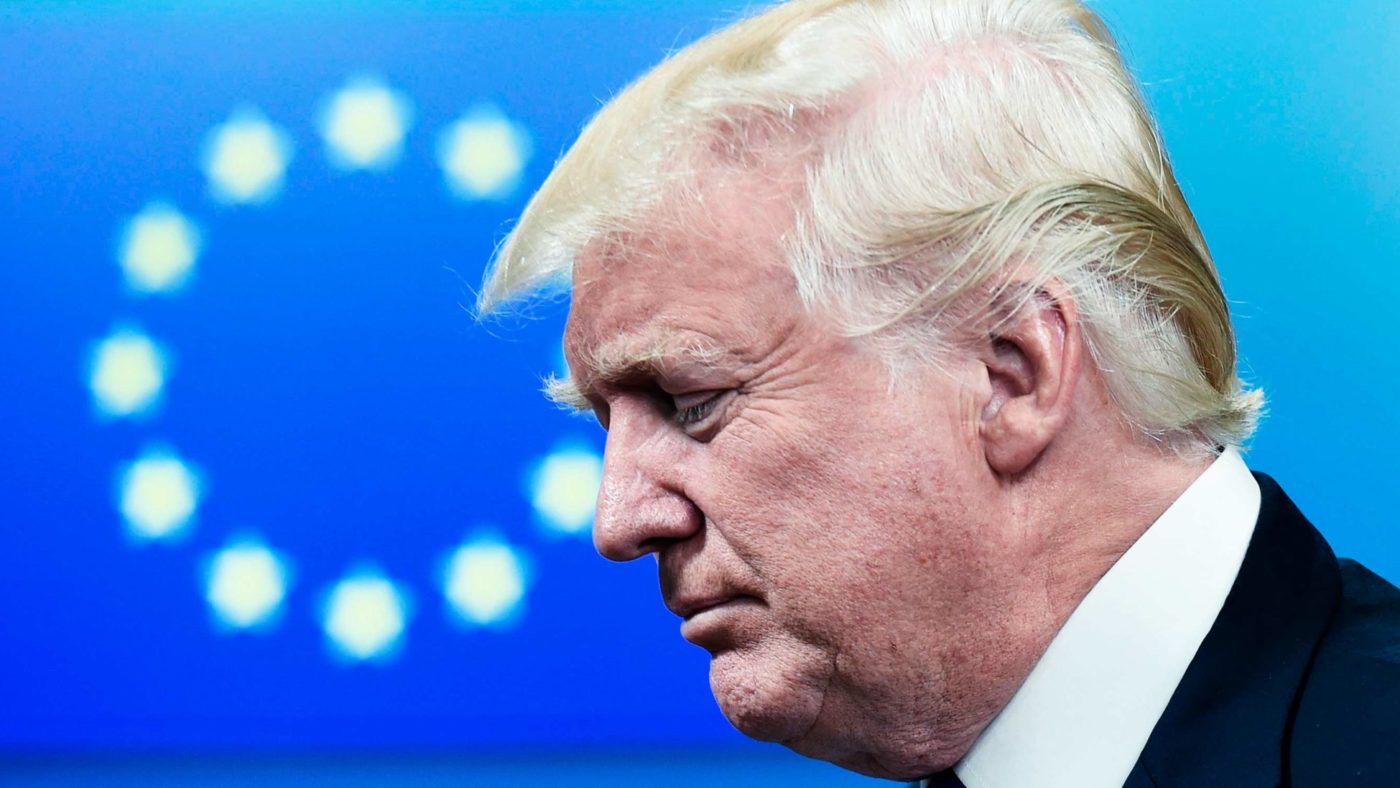When he makes his first formal visit to the United Kingdom later this week, President Donald Trump will greeted by throngs of angry protesters, as well as a giant balloon of a “Baby Trump” flying over London. Irrespective of his domestic or economic policies, there is one area in which he should be given strong support: European defence spending.
To begin with, don’t shoot the messenger because of who he is. Mr Trump’s demands have already been made by previous American leaders, though less bluntly. George W Bush and Barack Obama continuously and politely chided their European allies, asking them to spend more on defence. The former US Secretary for Defence, Robert Gates, even took it upon himself to remind his European partners that future American leaders might become less interested in European defence if they did not step up:
“Indeed, if current trends in the decline of European defence capabilities are not halted and reversed, future US political leaders – those for whom the Cold War was not the formative experience that it was for me – may not consider the return on America’s investment in NATO worth the cost.”
It is not clear whether Mr Trump is such a leader, as he did live through much of the Cold War. What is clear, however, is that he is increasingly unhappy with the level of European commitment, not least due to the sums involved.
In 2011, the year Mr Gates uttered those words, NATO European defence spending stood at 1.55 per cent of GDP, having dropped from over 2 per cent in the 1990s. But in 2017, their combined defence spending sat at 1.46 per cent of real GDP. And this comes after all NATO allies pledged – indeed, committed – at NATO’s Newport Summit in 2014 to increase defence spending towards 2 per cent of GDP by 2024. Clearly, the Europeans did not get Mr Gates’ message.
It is therefore understandable that President Trump is angry. Some allies are simply not pulling their weight, even after they pledged to do so. Worse, the wealthiest NATO allies have not been stepping up, while poorer partners have moved heaven and earth to meet their commitments and help underpin Europe’s defences.
Aside from the UK and US, the only other countries to meet the 2 per cent target in 2017 were Estonia, Greece, Romania and Poland – all substantially less well-off than the wealthier southern and western European neighbours. Lithuania and Latvia – with a level of income around a third of the European average – have managed to almost double relative defence spending since 2014. If they can do it, anyone can.
So, who are the leading miscreants? Who has, so far, failed to honour their commitments?
The biggest shirker is Germany, followed by Italy and Spain. Germany has the second largest economy in NATO, as well as a large current account surplus. Yet Berlin managed to spend just 1.24 per cent of Germany’s GDP on defence in 2017. Indeed, President Trump is said to have issued a mocking note to the German Chancellor, Angela Merkel, on his first meeting with her, demanding several hundred billion dollars in back payments.
In fact, if Germany’s spending on the armed forces is deducted from 2 per cent of its GDP, in the five-year period between 2012-2016, it “underspent” on defence by some $142 billion. And while Mrs Merkel’s latest spending plans (2018-2023) will see the German defence budget increase in total, it will likely continue to decline as a percentage of GDP.
And Italy and Spain are not far behind. While both have pledged considerable increases in defence spending in the run-up to 2024, neither is likely to meet the 2 per cent target. In 2017, Italy spent around 1.12 per cent of its GDP on defence, while Spain spent a pitiful 0.92 per cent. In total, NATO’s European members short-changed the organisation by some $451 billion between 2012 and 2016.
In the past, what Europe spent on defence mattered less, not least because the US had the means to carry the load. However, the US is simply not the power it once was. When NATO was formed in 1949, the US accounted for almost half of global output. In 1989, when the Berlin Wall fell, it still accounted for around a third. Today it accounts for approximately one quarter, and it may account for as little as one sixth by 2030. All of this as China grows stronger by the year.
For the UK, this debate matters also, for two reasons. First, in a letter to Gavin Williamson, the US Defence Secretary outlined his expectation for the British to spend more than 2 per cent of GDP on defence, not least because the UK is more than just a European power. It was inferred by the British that the “special relationship” might suffer if the UK failed to spend more on defence.
Second, the UK – like the US – suffers when Europeans fail to invest sufficiently in defence. This is not so much because of the lacking assets, but because European countries invest money they should have spent on defence into domestic programmes, giving them, potentially, an unfair economic advantage over the UK and US.
So, who exactly is undermining NATO? President Trump? Or mainland European countries, who committed to increase spending towards 2 per cent of GDP by 2024 – a large ten-year window – but have so far, with the notable exception of Britain and certain countries in Eastern Europe, failed to do so?
Consequently, mainland Europeans should be more modest when pointing fingers. Their shortcomings have undermined not only NATO, but also the West. They must meet their commitments. And the UK must also realise that it is more than just a European power – it has global responsibilities. As the NATO Summit approaches, Europe has a duty to step up and increase defence spending.


